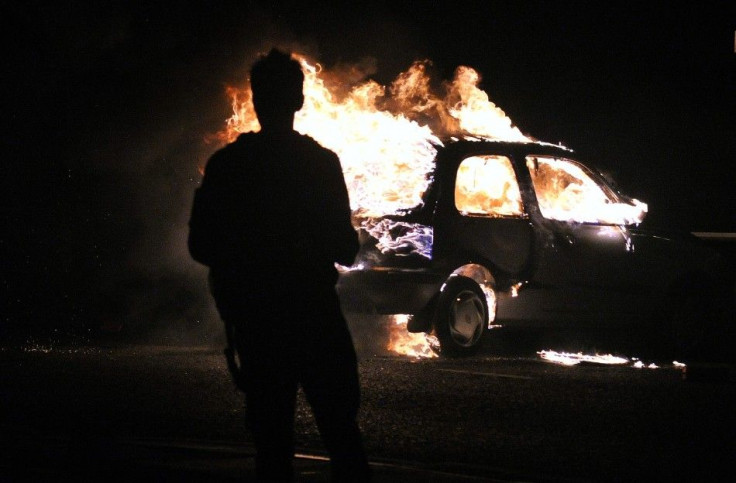UK Police Hunt Down BlackBerry Messages That Spread London Riots

Blackberry's messaging network and social networking sites were being blamed Tuesday for helping rioters in London spread word about the next hot spot, but industry experts said it's unfair to point the finger at technology.
The most powerful and up-to-the-minute rallying appears to have taken place on a more covert social network: BlackBerry Messenger.
Using BlackBerry handsets – the smartphone of choice for 37 percent of British teens, according to last week's Ofcom study – BBM allows users to send one-to-many messages to their network of contacts, who are connected by "BBM PINs," The Guardian reports.
Following three nights of rioting and looting in London, some police, politicians and media organizations singled out BlackBerry's messaging network as being a useful aid for troublemakers.
It's an "encrypted, very secure, safe, fast, cheap, free, easy way for disaffected urban youth to spread messages for the next targets", said Mike Butcher, editor of TechCrunch Europe and digital adviser to the mayor of London.
One BBM broadcast sent on Sunday, which has been shown to The Guardian by multiple sources, calls on "everyone from all sides of London" to vandalize shops on Oxford street, according to the London newspaper.
Yet Ian Maude, an analyst at Enders Analysis, said it's unfair to lay the blame on technology. "Certainly, it's a lot easier for people to communicate with each other in real time via some of these services, but that's a fact of life. They're not good or evil in themselves, its the purposes for which people use them," he told the Wall Street Journal.
"At the moment, obviously, they are being used by some of the looters and rioters and vandals to communicate with one another and to spread information, but equally perhaps you could argue that actually should help the law enforcement agencies to kind of keep a track of what's going on," he added.
Research In Motion Ltd., the maker of Blackberry smartphones, said it has "engaged with the authorities to assist in any way we can." The Metropolitan Police, known as Scotland Yard, have said that they are monitoring social media sites such as Twitter and Facebook.
"As in all markets around the world where BlackBerry is available, we cooperate with local telecommunications operators, law enforcement and regulatory officials," said Patrick Spence, managing director of global sales and regional marketing at RIM.
© Copyright IBTimes 2024. All rights reserved.











